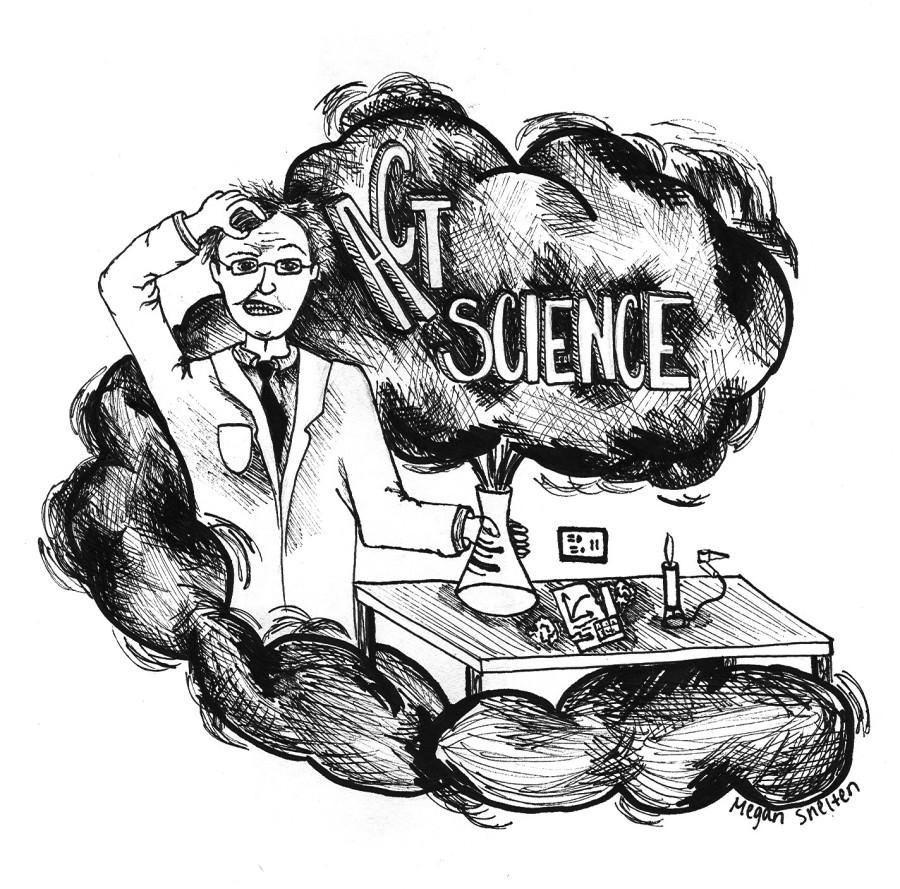Only 28 percent of Illinois students are prepared for college science courses, according to the most recent ACT score reports, and while the number has gone up since last year, it still remains the students’ worst scoring section. Illinois must make it a priority to improve students’ science education.
The percentage is based on ACT’s science section benchmark of 24, meaning students who score at or above this score are likely to receive a C or higher in a freshmen biology course. Unfortunately, the current score means 7 out of every 10 Illinois students are likely to receive lower than a C.
Illinois must improve its students’ science education because Illinois needs scientists. Science education is foundational to how we interact with nature, control our food supply, and further technology. An ever-increasing number of jobs are opening in science-related fields.
“By 2018, there will be more than 300,000 science, technology, engineering and mathematics (STEM) jobs in Illinois, a significant increase from today. The ability to fill these well-paying jobs with people from our own communities is critical to the success of Illinois’ science-based companies and to our state’s economy, as well,” John B. Thomas and James Sullivan of the Abbott Fund wrote in an August 2011 letter to the Chicago Tribune.
That science is Illinois schools’ lowest-scoring section is not all that surprising. First of all, ACT science has the highest benchmark number of the four ACT sections. It is also the last test of the day, and students may be fatigued from taking the first three tests. But the problem with science testing also starts early on in elementary school, where students are tested often in subjects like reading and math, but not science. In Illinois, students are tested in reading and math every year between the third and eighth grades, but they are only tested in science in the fourth and seventh grades.
Some schools focused on meeting No Child Left Behind requirements in math and reading have specifically chosen to focus less on other classes, like science, according to an August 2011 Chicago Sun-Times article. But the importance No Child Left Behind places on reading and math is no reason for Illinois schools to teach less science. Because the science section of the ACT involves reading graphs and using logic to find the right answer, the students’ scores in science reflect their math and reading skills as well.
“The gaps you see in science are a magnified version of what’s happening in education generally,” Gabrielle Lyon, the founder of Project Exploration, which brings outside science to Chicago public school students, told the Sun-Times in an August 2011 article. “Illinois doesn’t have a great record of investing in education, and the results in science magnify that.”
Illinois is one of only four states in the nation to require its students to take the ACT, but its scores aren’t even in the top ten. If Illinois is going to put extra money and effort into making every student take the ACT, it should make sure its students’ scores reflect that dedication. If Illinois schools want their students to be ready for college, science education is a critical area that needs to improve.
How is LZHS doing?
LZHS’s average score for the science section is at the benchmark 24, with 53 percent of students meeting the science benchmark.
Although this means only half of its students are prepared for college science, LZHS is making progress. This year’s average was 23.5, Brian Agustin, science department head, said.
“I think in terms of the jump, teachers are more focused on what we need to teach, so our teachers have aligned our curriculum to the standards and looked at college readiness standards specifically and worked on the curriculum to make sure they cover all the necessary materials,” Agustin said.
Agustin also believes the jump was due to the school changing the science curriculum sequence –to include earth, space, and physical science before students are required to take the test –and to students pushing themselves to do well because the ACT is so competitive.

